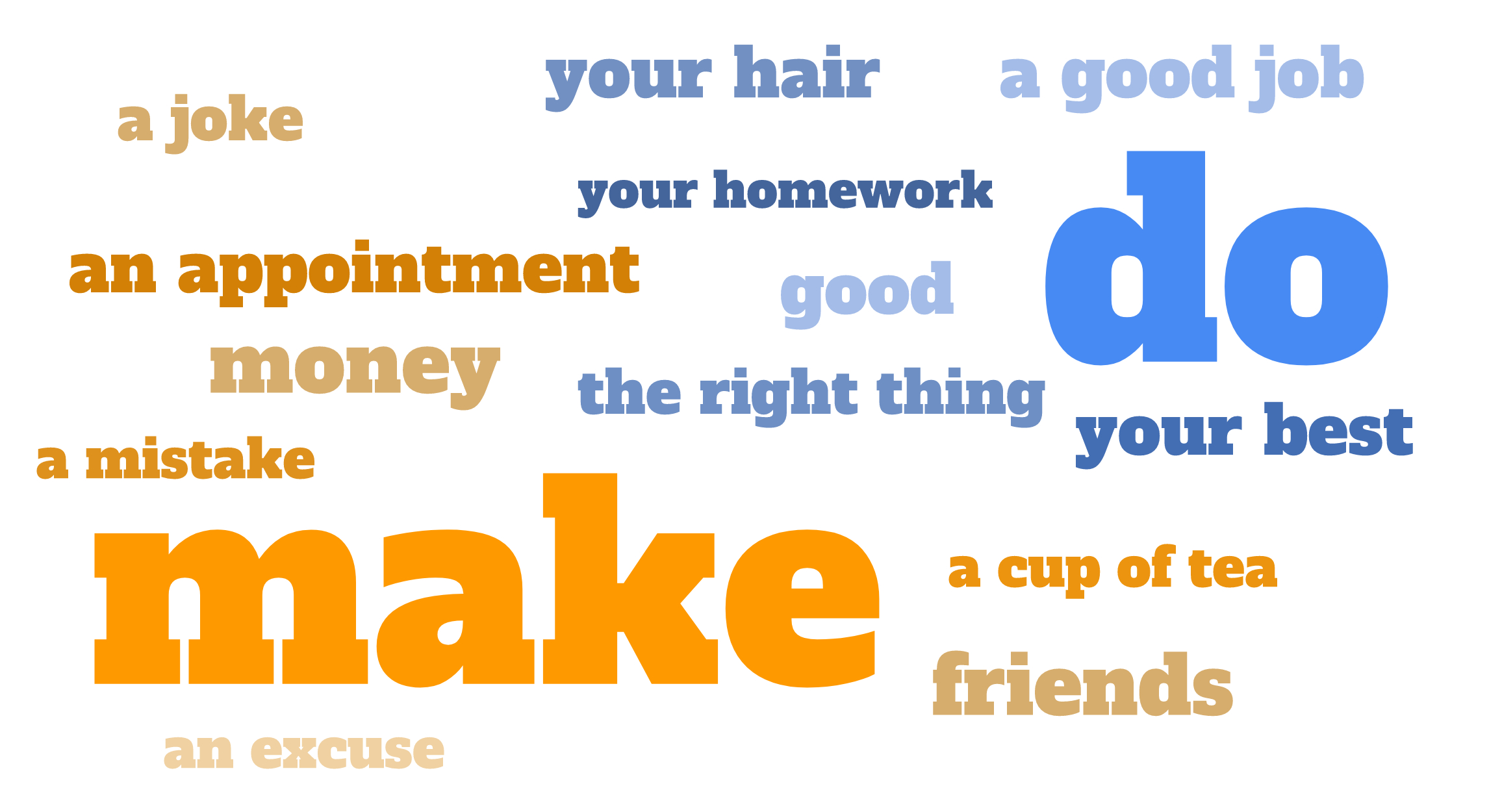Knowing about collocations can improve your English skills as they make you sound more native and by using them the way you express becomes more natural. A collocation is the frequently used combination of a word or phrase with another word or phrase that sounds natural to a native speaker. Typical examples are the verbs „do“ and „make“ as both express the state of being active in something but nonetheless each of them is allocated to different words (e.g. do your homework instead of make your homework). Collocations occur in different word-class combinations:
| Collocation type | Example |
|---|---|
| noun - noun | employment opportunities |
| adjective - noun | abstract concept |
| adverb - verb | clearly demonstrated |
| adverb - adjective | directly proportional |
| verb - adverb | expand rapidly |
| verb - noun | make policy |
| verb - adjective | consider relevant |
Let’s explore some advices for learning collocations effectively
- Use collocation dictionaries
When you work on your vocabulary do not learn words in isolation. Collocation dictionaries can help to learn words together. When you look for a particular word such as „help“, a collocation dictionary offers you the most frequent related verbs, adjective or nouns. - Learn new words in contexts
Learning new vocabulary in an isolated manner leads to a lack of fluency when you try to implement a new word in a conversation for example. Build a sentence for each new word in order to understand its meaning by collocating it with another word. Let’s take the word „to perpetuate“, for instance: With his statement she perpetuated the stereotype. In this example, „to perpetuate“ and „stereotype“ are collocated and by learning these words together you easily learn when to use them. - Mimic native speakers
Get as much English speaking input as possible, for example by talking to native speakers or by watching films in the original language. Be aware of particular collocations that occur frequently and try to make them part of your active vocabulary. - Start with strong collocations
Strong collocations are where the link between the two words is quite fixed and restricted. Weak collocations are where a word can collocate with many other words. The word „wish“, for instance, is a strong collocation as there are very few words that collocate with it. In contrast, the word „big“ is a weak collocation as it can be linked to hundred of other words. To get started with learning collocations and to avoid confusion start with strong collocations.
For getting started we have created an exercise on collocations with which you can expand your formal language.



